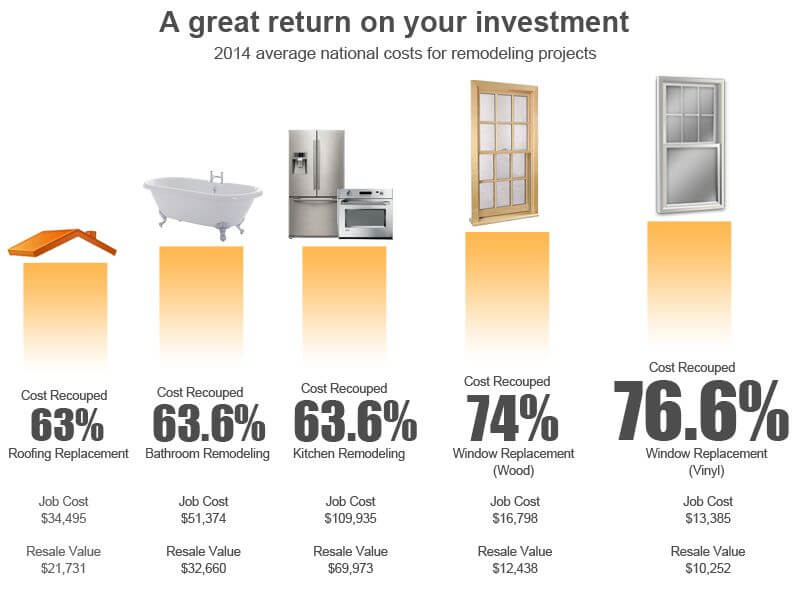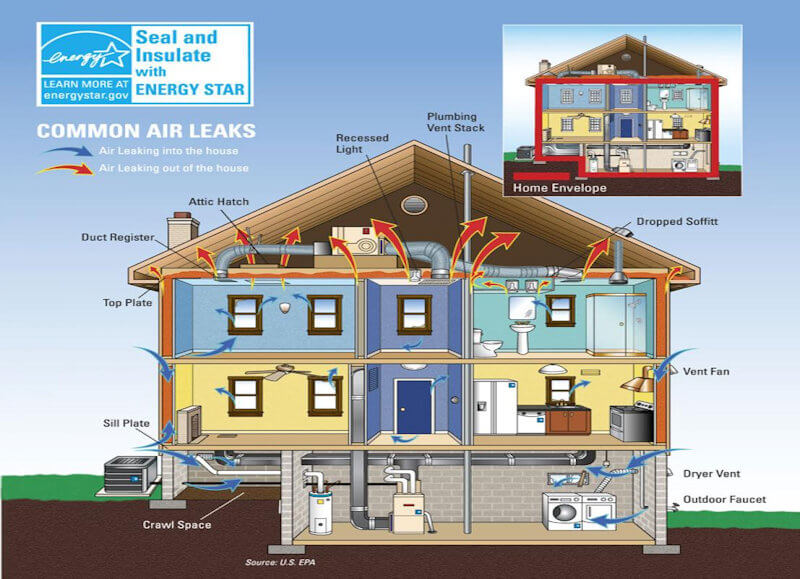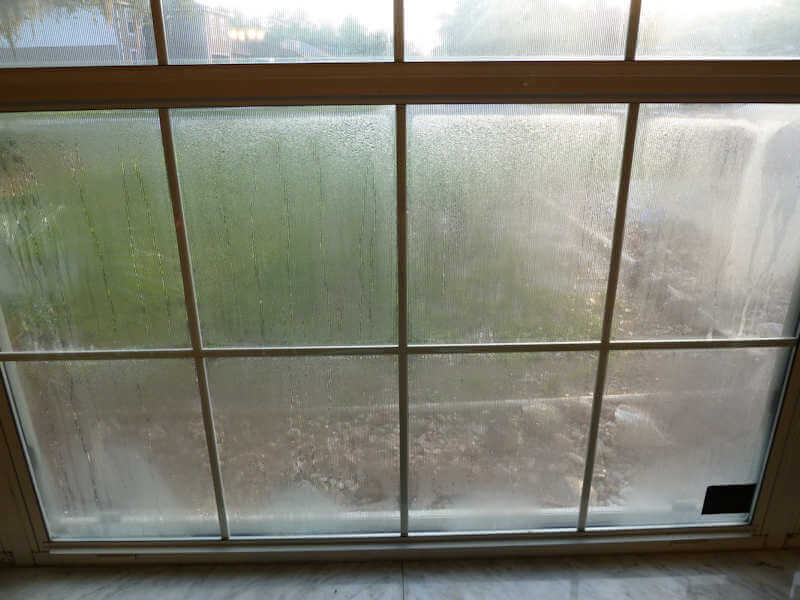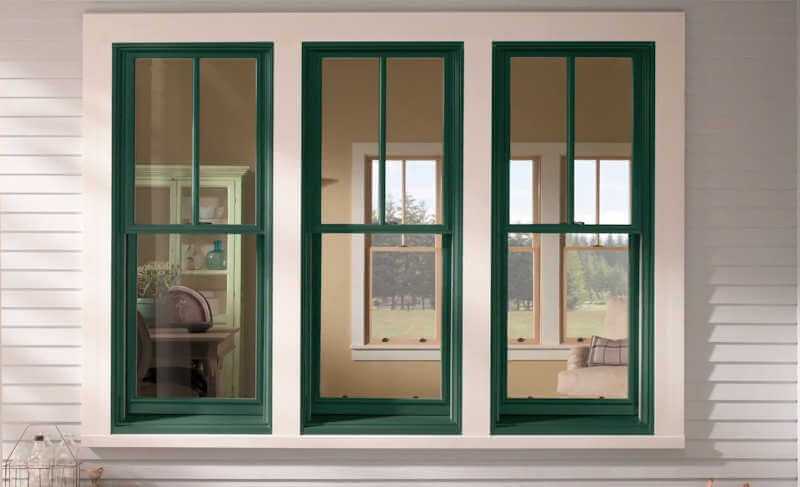One thing everyone can agree on: drafty, old windows in your home aren’t doing your utility bills any favors. If you didn’t build a custom home, most likely it came with single pane windows, and a single pane window just can’t beat the energy performance of a quality double or a triple pane window. As a matter of fact, the Department of Energy estimates that you can save $150 to $450 a year just by replacing those windows with ENERGY-STAR rated products.
But in the long run, how much of a difference does that really make to your home’s overall energy consumption? Especially when you consider that an energy efficient window costs somewhere between $300 to $1000 installed? If you’re updating all the windows in your home, will your energy savings really be enough to offset that investment? Or is it better to wait, and make other energy improvements instead? Let’s take a look—and see which updates are the smartest for your home.
You’ll Get a Better Return on Your Investment When You Replace Single Pane Windows
Whether efficient windows are worth it really boils down to the type of windows you’re replacing. If you have single pane windows with warped wood frames, for instance, you’re probably going to notice a significant difference in your utility bills. However, most homes are probably not in this situation.
However, energy savings aren’t the only way to calculate the worth of an improvement. New windows also increase your home’s property value, the fact is, a set of vinyl windows will recoup as much as 80% of the cost of new windows and your home will sell much quicker.
So, if you are planning on selling your property in a near future, replacing your windows is the best remodeling project you can do in your home.

Energy Efficient Windows Only Perform as Well as Your Air Sealing
While new windows might offer energy savings, they can’t really do much for your home if they aren’t properly sealed. That ENERGY STAR certification only guarantees the windows’ performance when they’re installed and caulked correctly.
That means sealing up the joints around your windows, but it also means taking a look at other areas, too. For instance, you might find leaks in worn or improperly sealed openings where pipes or HVAC ducts enter the walls in your home. Other spots to check? Seals around dryer vents, chimneys, water heaters, and furnaces. A leak here could be costing you a lot of dollars—and you’d never know it unless you looked.

Your Home’s Insulation Makes a Big Difference, Too
Along a similar vein, a home with poor insulation won’t benefit much from new windows, no matter how cutting-edge they are. In particular, insulating between the joists in an unfinished attic can have a massive impact on your home’s overall utility costs.
You probably already have insulation installed here, however. But if it’s ten years or older, it could be below the Department of Energy’s current standards for R-value. Additionally, insulation can decay or compact over the years—particularly if it’s older or if it was damaged by water from a ceiling or pipe leak. If you live in a snowy area and you notice icicles forming around the edge of your roof, that’s a pretty good sign that you need to have your insulation inspected by an HVAC professional.

If Double Pane Windows Are Failing, It’s Time to Replace
Even if you already have double pane windows, you might benefit from a replacement if you notice condensation between the panes of the windows. This condition indicates that the seal between the two panes is failing, and that can significantly reduce the windows’ performance. Additionally, if the windows were filled with gas insulation, it will slowly leak, making your existing double pane windows will be much less efficient.

Efficiency Features Benefit Some Homes More Than Others
The big takeaway here is that efficient windows will be a better investment in some homes than others, especially when paired with other energy-saving improvements like air sealing and insulation. However, if you already have double pane windows installed in your home, upgrading to ENERGY STAR windows doesn’t offer the best savings—especially compared with the cost-to-value benefits you’ll get with attic insulation, for instance.
Each home’s energy profile is unique. Energy efficient windows might make a huge difference in one home, and have much less impact in the next. That’s where audits come in. A home energy audit can help you assess the different parts of your home that can affect your overall energy consumption—and prioritize the improvements you need. That way, if you do choose to install energy efficient windows, you won’t be losing all the benefits to leaky seals or bad insulation.
And don’t discount the value of more comfortable and quieter home, which is all yours when you install new windows. That’s one benefit you can’t quantify!
https://akperbinalitasudama.ac.id/
https://akfisstlukastomohon.ac.id/
https://akbidjakartamitrasejahtera.ac.id/
https://akperpemkabacehtenggara.ac.id
https://aklpemprovsumsel.ac.id/
https://poltekkessbengkulu.ac.id/
https://akabidartakabanjahe.ac.id/
https://atrowidyadharma.ac.id/
https://akbidhafsyahmedan.ac.id/
https://akbidindahmedan.ac.id/
https://akbiddelhusdelmed.ac.id/
https://akperharapanmamadeliserdang.ac.id/
https://stmiktrigunapati.ac.id/






